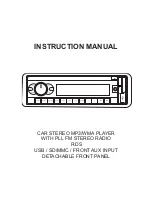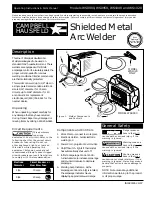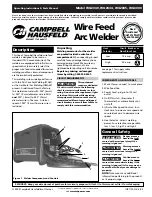
ACO
Quatrix-K Automatic Faecal Backflow Stop
This overview is not complete. To ensure safe and proper usage, read the "installation instructions" and the
"instructions for use" carefully.
Regulations for backflow stops
NOTICE
Protection against backflow is provided by wastewater lifting plants with a backflow loop. Backflow stops
are intended for domestic use and may only be used if permitted by local building regulations and the following
requirements according to EN 12056-4 are adhered to
■
Gradient from the drainage line into the sewerage system.
■
Flooding does not present a health hazard or threaten valuable property.
■
There are only a small number of users and they have a WC available above the backflow level.
■
Use of the connected drainage points can be suspended in the event of a backflow.
NOTICE
Incorrect installation:
Incorrect installation may lead to self-flooding and
backflow if drainage points above the flood level are
routed to a backflow stop.
Correct installation:
Only route drainage points below the flood level to a
backflow stop. Connect downpipes for surface water
downstream of the backflow stop in flow direction.
Netzbetrieb
1x: Ton aus
Test Betriebsverschluss
1x: Zufahrt
2x: Auffahrt
2x: Grundeinstellung
nach Störung
Dauerleuchten
Ausschalten
1. Netzstecker ziehen
2. Tasten (links/rechts)
gleichzeitig
5 Sekunden lang
drücken.
Einschalten
3. Netzstecker ein-
stecken um
Initialisierung
zu starten.
Blinkleuchten
Akkubetrieb
Rückstau
Betriebsverschluss zu
Motorstörung
Akkustörung
Betriebsverschluss fährt auf/zu
Netzbetrieb
1x: Ton aus
Test Betriebsverschluss
1x: Zufahrt
2x: Auffahrt
2x: Grundeinstellung
nach Störung
Dauerleuchten
Ausschalten
1. Netzstecker ziehen
2. Tasten (links/rechts)
gleichzeitig
5 Sekunden lang
drücken.
Einschalten
3. Netzstecker ein-
stecken um
Initialisierung
zu starten.
Blinkleuchten
Akkubetrieb
Rückstau
Betriebsverschluss zu
Motorstörung
Akkustörung
Betriebsverschluss fährt auf/zu
Requirements for commissioning
■
Water tightness and function test of emergency flap have been performed,
"instructions for use".
■
Sensor cable is dressed without any loops or kinks and connected.
■
The control unit is protected against flooding and frost (> 5 °C), and is mounted in a way that makes it clearly
visible and easy to operate.
■
Electric motor is mounted (spindle has been
cleaned
and
greased
before) and connected.
Switch the control unit on and off
Î
Read the instructions on the battery
cover (1).
Î
Remove the battery cover.
Î
Connect the battery plug (battery
socket on circuit board) (2).
Î
Mount the battery cover.
Backflow level
Backflow level
2
1
Vor dem Einschalten beachten!
Î
Batteriefach öffnen.
Î
Netzstecker einstecken (LED „Betrieb An“ und LED
„Netz“ leuchtet). Selbsttest startet (LED „Verschluss
öffnet/schließt“ blinkt). Batteriewarnung (LED
„Batterie“ blinkt, Alarm ertönt).
Î
Batteriestecker anschließen (Platine).
Batteriewarnung beendet.
Î
Batteriefach schließen.
Ausschalten:
Batteriefach öffnen. Batteriestecker
ziehen. Netzstecker ziehen. Batteriefach schließen.
0173.09.00 V1.2
Î
Open battery cover.
Î
Connect mains plug (LED “Operational
”
on and
LED “Mains
”
on). Self-test starts (LED “Flap in
Operation
”
blinks). Battery warning (LED “Battery
”
blinks, alarm sounds).
Î
Connect battery plug (circuit board).
Battery warning off.
Î
Close battery cover.
Switching off:
Open battery cover. Disconnect battery
plug. Disconnect mains plug. Close battery cover.
Note before switching on!
Prescribed inspections and servicing
NOTICE
Check after every inspections and servicing whether the operating flap and the emergency flap are open.
■
Monthly inspections by the operator:
Closing and opening the operating flap with the control unit.
Closing and opening the emergency flap.
■
Six-monthly inspections and servicing by a technical expert,
"instructions for use".
Close and open the operating flap
Closing the operating flap:
Î
Press button <Flap> (1) once. Alarm sounds.
Î
Turn off the alarm sound: Press button <Error> (2) once.
Alarm sounds again, when the operating seal is not opened within 30 minutes.
Opening the operating flap:
Î
Press button <Flap> (1) twice. Alarm sound goes off.
Disassemble and assemble the housing cover
Disassemble the housing cover:
NOTICE
Operating flap must first be brought into the
Disassembly-Position
.
Î
Hold buttons <Flap> (1) and <Error> (2) simultaneously for approx. 3 seconds. LED <Disassembly> lights up.
Press button <Error> (2), to turn off the alarm sound.
Î
Unscrew the cap nuts on the housing cover and remove the housing cover.
Assemble the housing cover:
NOTICE
When assembling the housing cover check the
proper position of the spindle (motor mount) and the
emergency flap. In the "Disassembly-Position"‚ the spindle
will protrude approx. 20 mm from the threaded actuator.
If this is not the case, the electric motor must be
dismantled and the "Disassembly-Position" must be adjusted
manually. The additional steps for this are marked in "blue".
Î
Unscrew the electric motor from the housing cover.
Î
Place the red tommy nut on the spindle and turn it (1)
until the spindle is protruding approx. 20 mm from the
threaded actuator (2).
Î
Move the red lever (emergency flap) to a vertical
position (3).
3.
90°
1.
2.
20
m
m
Î
Place the housing cover on the housing engaging the flaps and tighten the cap nuts diagonally (5 – 8 N·m).
Î
Remove the red tommy nut from the spindle.
Î
Clean and grease the spindle. Check the seating of the green O-ring on the underside of the electric motor.
Î
Place the electric motor carefully on the spindle and bolt to the housing.
Î
Opening the emergency flap: Push the red lever (emergency flap) against the flow direction until it stops.
Î
Exit the Disassembly-Position:
Hold buttons <Flap> (1) and <Error> (2) simultaneously
for approx. 3 seconds. LED <Disassembly> goes off.
2
1
0173.09.15 V 1
Issued: 2015–12–10




















